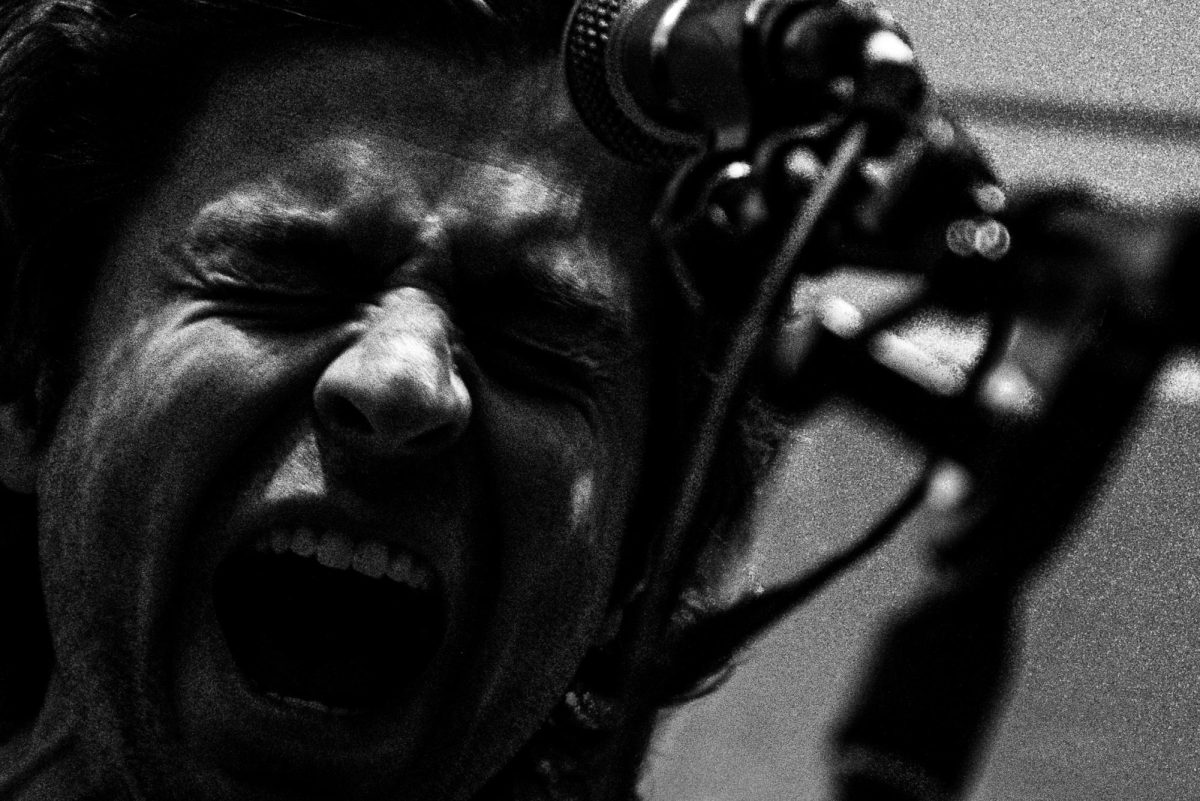Deconstructing the Weakerthans’ "Reconstruction Site"
March 24, 2016

Courtesy of Anti
I’m just going to come out and say it: I’m a sucker for concept albums. Especially when the concept is something subtle. There’s something about realizing a collection of seemingly unrelated songs are actually related that gets me going. Something else that adds a nice touch to the idea is when there are little tracks peppered throughout the record that have the same melody and serve to tell a story. An album that does all of this masterfully is the Weakerthans’ 2003 album Reconstruction Site, and this week we’ll be looking at how the three sonnets that appear throughout the record serve to achieve its near perfect tone—one of loss, regret, and hope.
Like any decent album opener, “Manifest” begins to set the tone of the record. It begins to tell a tale that, while initially sounding hopeful, does not seem quite perfect upon repeated listens. And it is the ending rhyming couplet (the three tracks are all Shakespearean-style sonnets, after all) that, at least to me, provide that uneasiness:
And I’m permitted one act I can save,
I’ll choose to sit here next to you and wave.
Why does the narrator have to “save” an act? Who is he talking to? Why do these last few lines seem to suggest a bleak future for them?
Well, after a few tracks (including the title track and phenomenal “Plea from a Cat Named Virtute,Û) there is another sonnet, this one with a less joyous sound. Entitled “Hospital Vespers,” it clears up a few questions that “Manifest” left you with. If the back-masked accompaniment alone doesn’t make you uneasy, the lyrics will break your heart. The first time I heard the last quatrain and couplet, I was absolutely devastated:
You said “Hey, can you help me I can’t reach itÛ
And pointed at the camera in the ceiling
I climbed up, blocked it so they couldn’t see
And turned to find you out of bed and kneeling
Before the nurses came, took you away
I stood there on a chair and watched you pray.
And we now know why an “act” must be saved. The person the narrator is addressing throughout the couplets is someone terminally ill and does not have much more time left to spend with their loved ones. Their privacy has been compromised and they want some time away from medical professionals. And while they get some of it, it clearly is not as long as they had hoped.
[band picture]
The album from here, at least to me, seems to take a darker tone, with heavier tracks like “Uncorrected Proofs” and “The Prescience of Dawn” becoming more common on the second half. The themes of anxiety and uncertainty that have been present throughout the album come to a head, and you’re begging for some type of resolution. And it comes in the form of the final sonnet, “Past-Due.” I hate to take up so much space with lyrics, but these fourteen lines serve as an incredible resolution to the story, and a perfect close to Reconstruction Site.
February always finds you folding
Local papers open to the faces
Passed away to wonder what they’re holding
In those hands we’re never shown the places
Formal photographs refuse to mention
His tiny feet, the birthmark on her knee
The tyranny of framing our attention
With all the eyes their eyes no longer see
And darkness comes too early you won’t find
The many things you owe these latest dead
A borrowed book, that check you didn’t sign
The tools to be believed with be beloved
Give what you can to keep to comfort this
Plain fear you can’t extinguish or dismiss
The band deals with the subject of death very lightly here. They don’t go into the details of the ill person’s passing, and instead have this pensive musing on the aftermath of death. They have disdain for obituaries, as they do not show what the deceased individual was in life—they miss the tiny details (“his tiny feet, the birthmark on her kneeÛ). And the closing couplet perfectly sums up the ultimate theme of the record in one of the most poignant ways possible. You may not be able to permanently get rid of fear (of death, or of anything to be honest), but you can do your damnedest to be comfortable and happy. Be that having a group of close friends who you know will always be there for you, surrounding yourself with your favorite music, or whatever works best for you.













